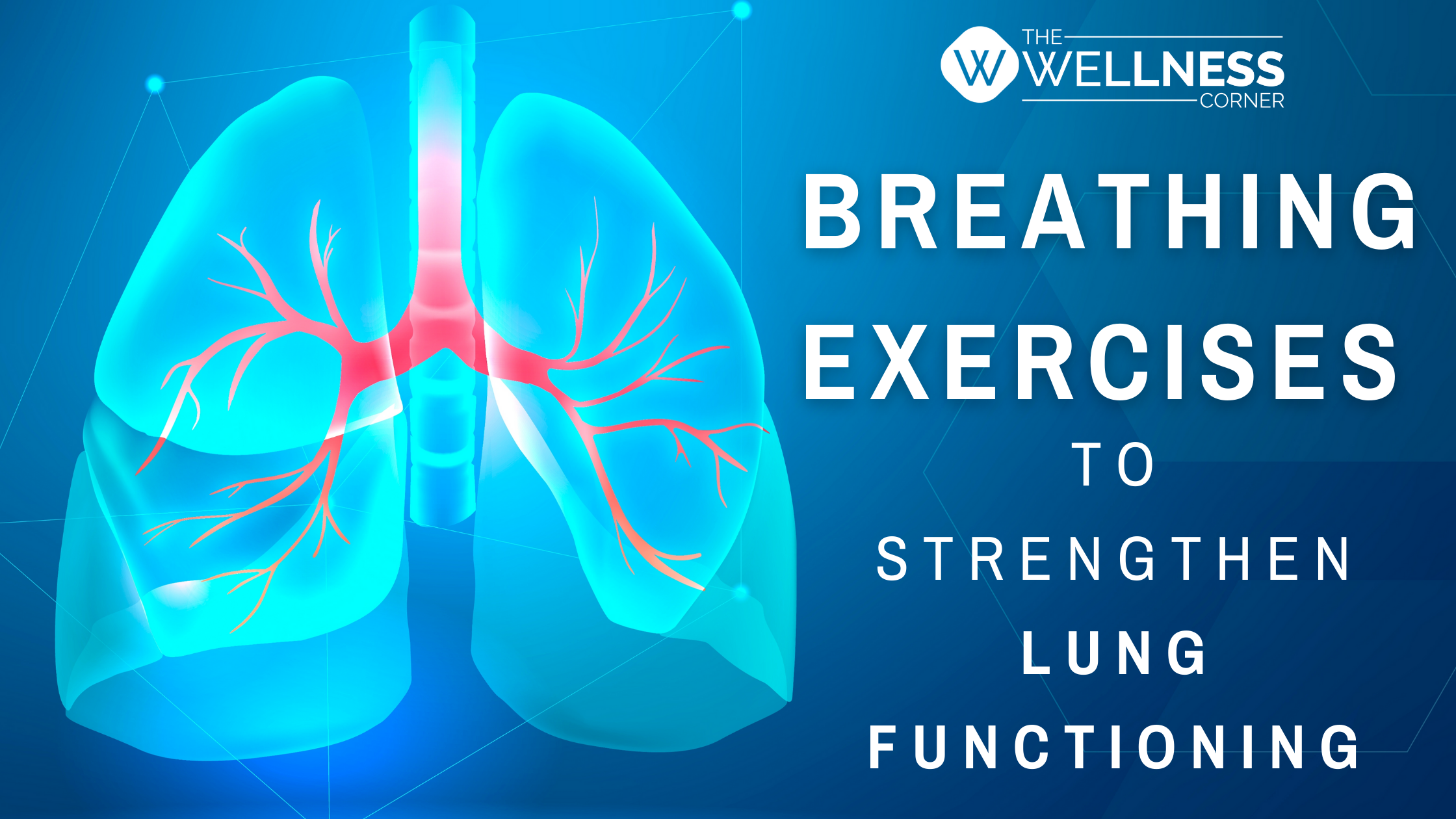Nutrition & Lifestyle Choices To Improve Lung Health
3 months ago
4 minute read.

Your Lungs Deserve as Much Care as Your Heart
Every breath you take is powered by two tireless organs, your lungs.
They work around the clock, filtering air, supplying oxygen, and keeping you energized through every task, meeting, and workout. Yet, most of us don’t think about lung health until we face shortness of breath, coughing, or fatigue.
The good news? Your daily nutrition and lifestyle choices can significantly influence how efficiently your lungs perform. Whether you’re aiming to prevent long-term issues or just want to breathe easier, small changes can make a big impact.
Nutrition: Feeding Your Lungs Right
1. Antioxidants Are Your Lung’s Best Friends
Pollution, cigarette smoke, and stress expose your lungs to free radicals, unstable molecules that damage cells. Antioxidant-rich foods help neutralize this damage and reduce inflammation.
Power Foods:
- Vitamin C sources like oranges, kiwi, amla, and bell peppers
- Vitamin E-rich foods such as almonds, sunflower seeds, and avocados
- Beta-carotene from carrots, sweet potatoes, and spinach
These nutrients protect lung tissue and strengthen your body’s natural defense system.
2. Omega-3 Fatty Acids for Anti-Inflammatory Support
Inflammation is a root cause of many lung conditions.
Omega-3 fats help reduce airway inflammation and support overall respiratory function.
Include: Fatty fish (salmon, sardines, mackerel), walnuts, flaxseeds, and chia seeds. Even two servings of fish per week or a daily handful of seeds can make a difference.

3. Stay Hydrated for Clear Airways
Water helps keep the mucosal linings in the lungs thin, which makes it easier for you to breathe and for your lungs to expel irritants. Aim for 8–10 glasses of water daily and add herbal teas like ginger or licorice tea for additional soothing benefits.
4. Go Easy on Processed Foods
Packaged snacks, refined carbs, and sugary drinks can promote inflammation and oxidative stress, both of which strain your lungs. Choose whole grains, fresh fruits, vegetables, and lean proteins instead. Your lungs will thank you for it.
Lifestyle Choices That Help You Breathe Better
1. Practice Deep Breathing
Breathing exercises strengthen your diaphragm and improve oxygen exchange.
Try diaphragmatic breathing or box breathing (inhale 4s, hold 4s, exhale 4s, hold 4s) for 5–10 minutes daily.
These simple practices enhance lung capacity and reduce stress.

2. Keep Moving
Physical activity isn’t just good for your heart, it’s great for your lungs too. Exercise helps increase oxygen intake, strengthen respiratory muscles, and boost endurance. Aim for 30 minutes of brisk walking, cycling, yoga or swimming most days of the week.

3. Maintain Indoor Air Quality
Poor air quality is one of the leading causes of respiratory problems in urban environments.
You can:
- Keep rooms ventilated
- Add air-purifying plants (areca palm, snake plant, peace lily)
- Avoid burning incense or synthetic fragrances indoors
- Use an air purifier if pollution levels are high
4. Quit Smoking or Vaping
Smoking remains the biggest threat to lung health.When you quit, your body starts healing almost immediately. Within 12 hours, oxygen levels begin to improve, and within a few weeks, lung function starts recovering (American Lung Association).
Even cutting down gradually can have measurable benefits.
5. Manage Stress
Chronic stress can lead to shallow breathing and tension in chest muscles, limiting oxygen intake. Incorporate stress-relief habits like meditation, journaling, yoga, or mindful breathing breaks during work. A calm mind leads to steady breathing and healthier lungs.
6. Regular Health Checks
If you experience frequent breathlessness, coughing, or chest tightness, don’t ignore it. Early evaluation through lung function tests or respiratory health assessments can detect issues before they worsen.
If you smoke, used to smoke, or are often exposed to pollutants, talk to your doctor about low-dose CT scans. They can detect lung cancer early, when it’s most treatable and before symptoms appear.
Small Habits, Big Difference
Lung health is about more than just avoiding disease, it’s about building resilience.
Your lungs thrive on clean air, balanced nutrition, hydration, and movement. Every choice, from what you eat to how you breathe, adds up to stronger lungs and better energy levels.
Take the First Step
Eat clean, breathe deeply, move more, and protect the air you live in.
And for a quick reality check, take the “How Well Are You Breathing?” self-assessment on the Wellness Corner app, a simple way to measure your respiratory health and get personalized tips to strengthen it.
Leave a Comment
Related Articles
Health Checks @ Home
Service
Explore
© 2026 Truworth Health Technologies Pvt. Ltd.




